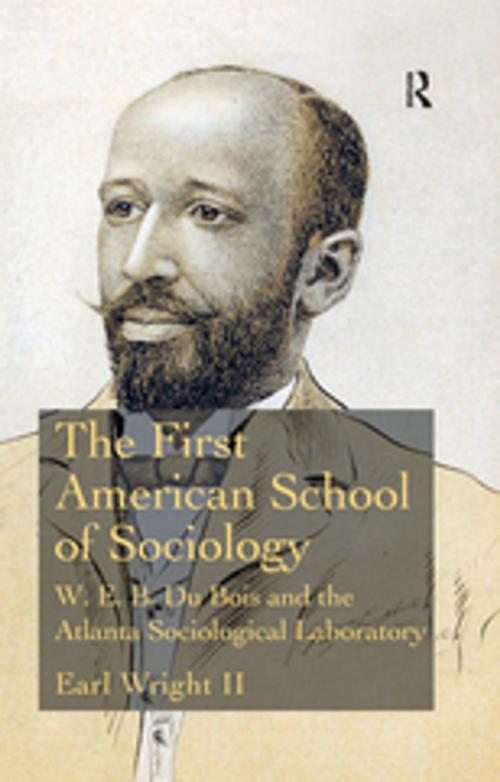The First American School of Sociology
W.E.B. Du Bois and the Atlanta Sociological Laboratory
Nonfiction, Social & Cultural Studies, Social Science, Cultural Studies, Ethnic Studies, Sociology| Author: | Earl Wright II | ISBN: | 9781317031741 |
| Publisher: | Taylor and Francis | Publication: | May 15, 2017 |
| Imprint: | Routledge | Language: | English |
| Author: | Earl Wright II |
| ISBN: | 9781317031741 |
| Publisher: | Taylor and Francis |
| Publication: | May 15, 2017 |
| Imprint: | Routledge |
| Language: | English |
This book offers an original and rounded examination of the origin and sociological contributions of one of the most significant, yet continuously ignored, programs of social science research ever established in the United States: the Atlanta Sociological Laboratory. Under the leadership of W.E.B. Du Bois, this unit at Atlanta University made extensive contributions to the discipline which, as the author demonstrates, extend beyond 'race studies' to include founding the first American school of sociology, establishing the first program of urban sociological research, conducting the first sociological study on religion in the United States, and developing methodological advances that remain in use today. However, all of these accomplishments have subsequently been attributed, erroneously, to White sociologists at predominately White institutions, while the Atlanta Sociological Laboratory remains sociologically ignored and marginalized. Placing the achievements of the Du Bois led Atlanta Sociological Laboratory in context, the author contends that American Jim Crow racism and segregation caused the school to become marginalized and ignored instead of becoming recognized as one the most significant early departments of sociology in the United States. Illuminating the sociological activities - and marginalization - of a group of African American scholars from a small African American institution of higher learning in the Deep South - whose works deserve to be canonized alongside those of their late nineteenth and early twentieth century peers - this book will appeal to all scholars with interests in the history of sociology and its development as a discipline, race and ethnicity, research methodology, the sociology of the south, and urban sociology.
This book offers an original and rounded examination of the origin and sociological contributions of one of the most significant, yet continuously ignored, programs of social science research ever established in the United States: the Atlanta Sociological Laboratory. Under the leadership of W.E.B. Du Bois, this unit at Atlanta University made extensive contributions to the discipline which, as the author demonstrates, extend beyond 'race studies' to include founding the first American school of sociology, establishing the first program of urban sociological research, conducting the first sociological study on religion in the United States, and developing methodological advances that remain in use today. However, all of these accomplishments have subsequently been attributed, erroneously, to White sociologists at predominately White institutions, while the Atlanta Sociological Laboratory remains sociologically ignored and marginalized. Placing the achievements of the Du Bois led Atlanta Sociological Laboratory in context, the author contends that American Jim Crow racism and segregation caused the school to become marginalized and ignored instead of becoming recognized as one the most significant early departments of sociology in the United States. Illuminating the sociological activities - and marginalization - of a group of African American scholars from a small African American institution of higher learning in the Deep South - whose works deserve to be canonized alongside those of their late nineteenth and early twentieth century peers - this book will appeal to all scholars with interests in the history of sociology and its development as a discipline, race and ethnicity, research methodology, the sociology of the south, and urban sociology.















